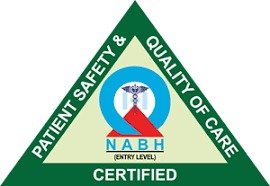PROSTATE & GENITOURINARY CANCER
Treatment Options
Surgery
Chemotherapy
Active surveillance
Radiation therapy
Immunotherapy
Hormone therapy
symptoms
Painful ejaculation .
Swelling in legs or pelvic area.
Burning or pain during urination.
More frequent urges to urinate at night.
Numbness or pain in the hips, legs or feet.
Difficulty urinating, or trouble starting and stopping while urinating.
Blood in semen.
Loss of bladder control.
Blood in urine (hematuria).
Decreased flow or velocity of urine stream.
Difficulty getting an erection (erectile dysfunction).
Risk factors
Some common risk factors for prostate cancer include:
Genome changes.
High testosterone levels.
Genetic: Inherited with Family history.
Age: The risk of developing prostate cancer increases with age.
Diet: A diet high in saturated fat, as well as obesity, increases the risk of prostate cancer.
Race: Studies show that African American men are approximately 70 percent more likely to develop prostate cancer in their lifetime than Caucasian or Hispanic men.




